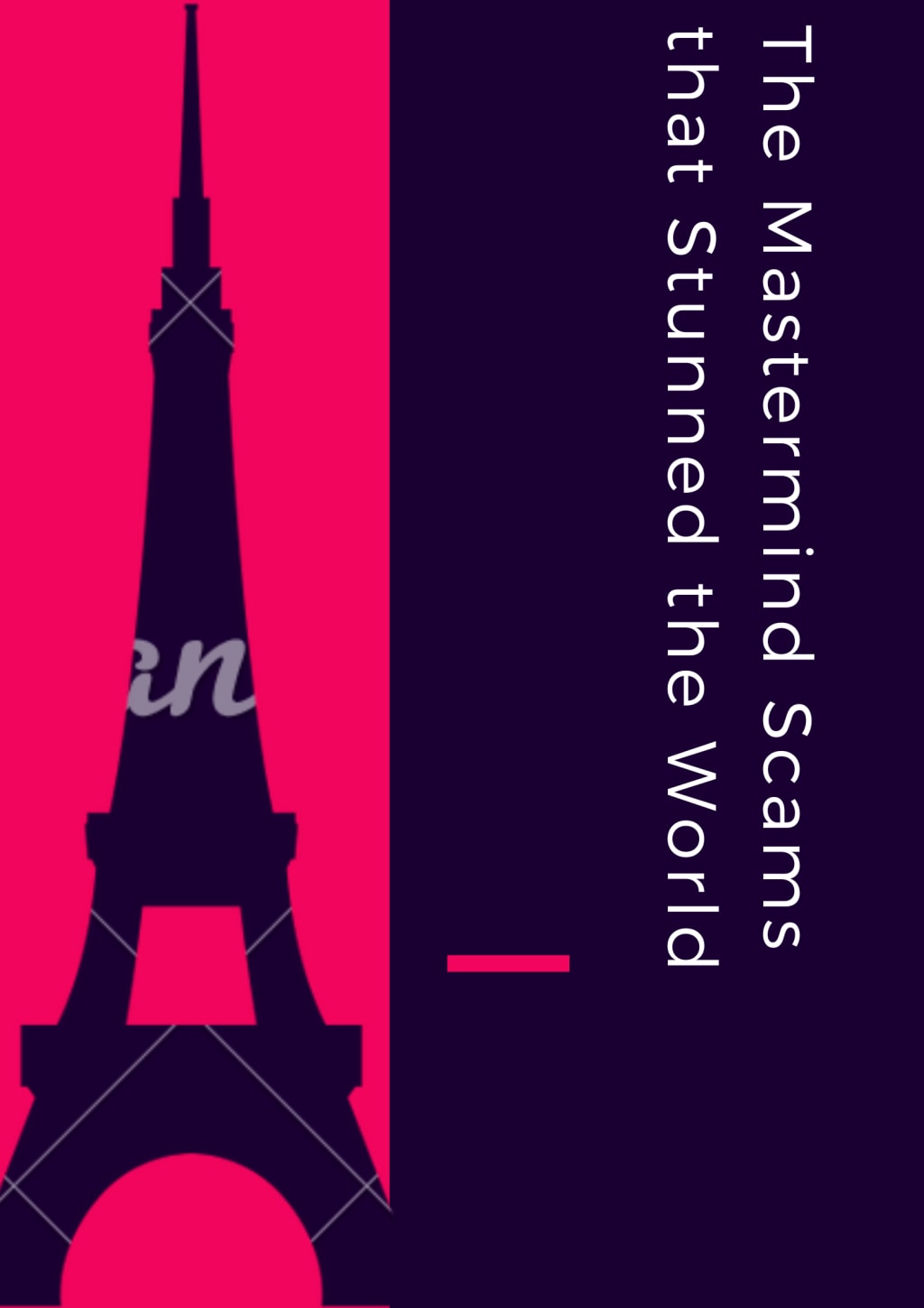The Mastermind Scams that Stunned the World
The Unbelievable Saga of Victor Lustig's Audacious Exploits

Title: The Ingenious Con of Selling the Eiffel Tower Twice: The Mastermind Scams that Stunned the World
Subtitle: The Unbelievable Saga of Victor Lustig's Audacious Exploits
In the realm of infamous con artists and cunning criminals, one name stands out for his audacious exploits and ingenious schemes: Victor Lustig. While his criminal endeavors spanned a range of cons and frauds, one tale stands head and shoulders above the rest—the story of how he managed to sell the iconic Eiffel Tower not once, but twice. This is the astonishing account of Lustig's life of crime, his remarkable charm, and the audacity that captured the world's imagination.
To truly appreciate Lustig's brilliant feat, it's important to delve into the backstory that led to the audacious Eiffel Tower scam. The inspiration didn't arise from a whimsical idea but from a calculated analysis of a newspaper article that highlighted the exorbitant upkeep costs of the Eiffel Tower. With its colossal iron structure, the tower was becoming a financial burden on the French government, costing them an astronomical $1.1 million annually for maintenance alone.
Lustig's mind worked in mysterious and strategic ways. He recognized that this financial strain might push the French government to consider alternative solutions, such as selling the iconic landmark to a wealthy private investor. Armed with this insight, Lustig set out to weave an elaborate web of deception that would make him a wealthy man.
The first step was to create an air of legitimacy. Using fake government documents, carefully crafted stationery, and an in-depth knowledge of the Eiffel Tower's financial concerns, Lustig immersed himself in his role. He organized an exclusive meeting at a prestigious hotel, inviting some of the richest scrap metal dealers in Paris. The goal was to identify the perfect mark—someone who would fall for his well-rehearsed con.
As the deputy director general of the ministry of posts and telegraphs, Lustig presented himself as a high-ranking official with a genuine concern: the French government's mounting expenses to maintain the Eiffel Tower. He intimated that the government was considering offloading the burden to a private businessman who could take care of the costs in exchange for the prestige associated with ownership. In an era when such grand gestures could bring immense notoriety, the concept didn't seem entirely far-fetched.
At this high-stakes meeting, Lustig's suave demeanor and polished persuasion skills paid off. One businessman, Andre Poisson, stood out as the prime target for Lustig's scam. Poisson's offer of seventy thousand francs to purchase the Eiffel Tower was beyond what Lustig had hoped for. With the money secured, Lustig disappeared to Austria, leaving behind a trail of confusion and intrigue.
Remarkably, despite the audacity of the scam and the sizable sum involved, no report was filed. It's believed that Poisson's embarrassment over being conned prevented him from alerting the authorities. This stroke of luck emboldened Lustig, leading him to attempt the same con again within the same year. This time, however, one of his targets caught on and informed the police, prompting Lustig to flee the country and escape the authorities' grasp.
While Lustig's escapades weren't limited to the Eiffel Tower scam, his audacity and cunning marked him as one of the most innovative con artists of his time. His "Romanian box" invention, a trunk rigged with fake gears and levers to replicate currency, fooled even a Texas sheriff who purchased it for thousands of dollars. This elaborate ruse culminated in Lustig's escape, only to be recaptured and ultimately sent to the notorious Alcatraz prison.
Lustig's legacy is a testament to his ability to exploit human psychology and manipulate his marks. His "rules of the con" laid out his successful approach: patiently listen, agree with political and religious views, and gently nudge conversations into seductive territory. He embodied the role of a patient and empathetic listener, a friend who shared the same viewpoints and never probed into personal matters.
But even a mastermind like Lustig had his limits. Betrayed by his girlfriend, he found himself behind bars once again. A daring escape and a brief period of freedom ensued, only to be followed by his recapture and imprisonment on Alcatraz. There, his life ended due to pneumonia, closing the chapter on a life that had left an indelible mark on the world of crime.
The tale of Victor Lustig's audacious Eiffel Tower scams continues to captivate and intrigue. It remains an iconic example of the power of persuasion, the art of the con, and the allure of the criminal mind. As the world reflects on this incredible saga, one can't help but wonder about the untold stories of history's most cunning and captivating criminals.





Comments
There are no comments for this story
Be the first to respond and start the conversation.